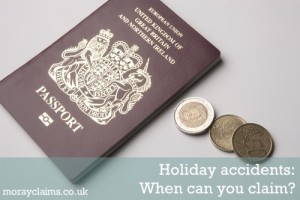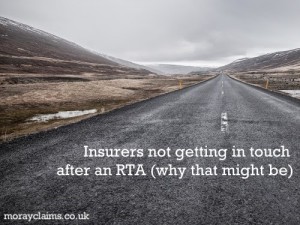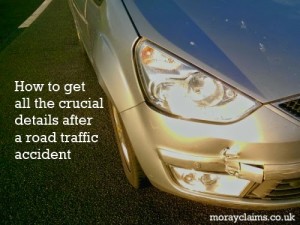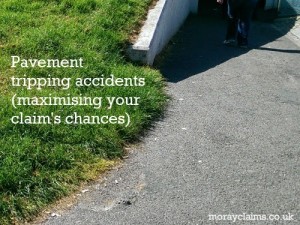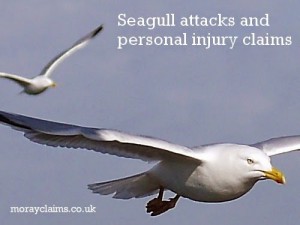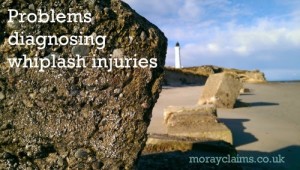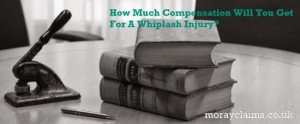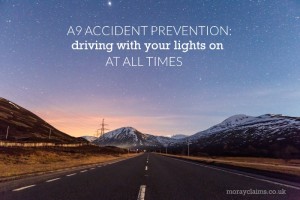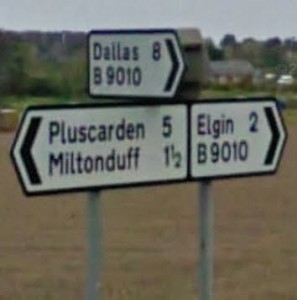This is the time of year when many of us are returning to work with happy holiday memories. However, for some, their vacation will have been spoiled by an accident or illness. Damage to your health is upsetting enough but the difficulties created will be compounded where you don’t speak the local language and are dealing with an unfamiliar health care system. Added to the pain and suffering of your injury is the regret that the money you have spent on your trip has been wasted. If you have been the victim of injury or illness on holiday, can you do anything to recoup your losses? It depends upon the exact circumstances but there are certainly some situations in which you can claim successfully for your physical, emotional and financial loss. Package holidays If, for example, the injury occurred while you were on a package holiday, the focus will be on whether the tour operator is to blame. Tour operators have a legal duty to protect the customers to whom they have sold holidays. Continue Reading
Insurers Not Getting In Touch After An RTA (Why That Might Be)
How long does it take for Insurers to get in touch after a road traffic accident? That’s a question we received recently in the following terms: “I was involved in an RTA two months ago. I have not heard from the insurance company yet. How long does it take for them to get in touch? The accident was not my fault.” A significant collision - with lots of post-accident worries It turns out this accident involved a rear end shunt at a junction. The vehicle was pushed right off the road by the impact. The injured driver who contacted us had been knocked unconscious as a result of the crash. He spent two nights in hospital, was off work for several weeks and lost wages. An incorrect assumption He had been driving his works van and thought that his employers’ motor insurers would take care of his claim for his injuries and his financial losses, including his loss of earnings. This was a classic situation where you, as the accident victim, have suffered injury through no Continue Reading
How To Get All The Crucial Details After A Road Traffic Accident
If you're involved in a RTA, there's crucial information you need to get We were on the main road south. We had not even made it out of Moray on our journey to Edinburgh. Accident A car approached from a minor road which formed a T-junction with our road, on our left. It should have given way to us but it didn’t; instead, it pulled out right in front of us and I could not stop in time. The front of our car hit the driver’s side of the other car, at the rear wheel arch. I had not been going fast and our speed at impact was probably less than 20 mph. Nevertheless, it was enough to cause the other car to spin right round, so it ended up facing into the junction it had come out of. What we did immediately after the accident I switched off the engine. I didn’t remember to switch on the hazard warning lights but my wife, in the passenger seat, did. I got out of the car and found the other driver was already out of his car. We established that both vehicles were Continue Reading
Pavement Tripping Accidents (Maximising Your Claim’s Chances)
This post covers pavement defects and hazards which can cause you, as a pedestrian, to trip and fall. A separate post deals with situations where your injuries result from slipping in conditions of ice and snow. The trip hazard (towards the bottom of the above photo, below the bracket sign after the word “chances”) on the footpath pictured above was close to the north side of the underpass at Alexandra Road (A96), Elgin, and to our offices at 1 North Street. Part of a local authority’s responsibilities If you are injured as the result of a tripping accident on a public pavement or footpath in Scotland, any claim is usually directed against the local authority. In Moray, the responsible authority is The Moray Council. In most cases, the defect in the surface will be the result of erosion over many months (by contrast, in the above case, it was due to the surface of the footpath not being properly smoothed off at the time it was laid). Where an unexpected edge which causes a Continue Reading
Seagull Attacks and Personal Injury Claims
Seagull attacks on humans are most likely in Scotland in the period May to July each year Injuries caused by dogs and other animals can give rise to successful personal injury claims. But what about an injury caused by a seagull? This is what a judge in the Court of Session had to consider in Cathie Kelly’s claim against the owners of the building – an old Victorian school - in Greenock, where she worked. Swooping seagull As she was going out of Ladyburn Business Centre (“LBC”) to get her lunch, an adult seagull dived at Mrs Kelly with outstretched wings. The bird did not injure her directly; instead, she hurt herself in her effort to get out of its way, as she stumbled and fell. She claimed that the building owners failed to take reasonable care for her safety. Her claim was based on occupiers’ liability and – because she was at work at the time – health and safety regulations. Seagulls protecting their young In Scotland, and certainly in Moray, you don’t even have to live at Continue Reading
Problems Diagnosing Whiplash Injuries
The Westminster Government is concerned that the quality of medical evidence in whiplash cases is not as good as it should be. It’s reckoned that claimants are duping doctors and exaggerating or inventing their whiplash symptoms. The Government proposes accreditation of medical experts to ensure greater consistency. The attack on whiplash claims is unrelenting. The insurance industry now suggests review of the law so that, as a matter of public policy, you should not be allowed to claim compensation for “low value” whiplash; instead, all insurers should have to pay is the cost of treatment, such as physiotherapy. What are the problems with whiplash? The terminology could be clearer, for a start. Whiplash is really a 'neck sprain', which commonly results from road traffic accidents where there is a rear end impact. It happens in an instant. The head is thrown first backwards and then forwards. Typically, the whole injury “event” is over within half a Continue Reading
How much compensation will you get for a whiplash injury?
Photograph: "Spines" by Nicky Mack Whiplash injuries to the upper spine can range widely in severity. From neck stiffness lasting for a day or two, the symptoms can extend to pain and restriction of movement which persists for months or even years. We have posted on this Blog previously about the “classic” whiplash accident mechanism – usually a road traffic accident involving a rear end shunt. Whiplash remains a controversial injury, which has become a bit of a political football. Because there are no physical signs associated with whiplash symptoms – such as would show up on x-rays or other scans – exaggeration and fabrication of claims is always a possibility. Likely claim value is a factor in deciding whether a claim is worth it or not If you are considering making a whiplash claim, you will be wondering how much your claim is going to be worth. It is reasonable to consider this, as you will want to weigh up whether it is going to be worth the time and Continue Reading
Fatal Accident Claims in Scotland: Increased Compensation levels
Claims by three members of the family of a man who died as the result of a road traffic accident in Glasgow have been awarded damages totalling £106,500. Lady Wise, in the Court of Session, decided that the award of compensation in a previous similar case had been too low. She set the damages level for each claimant by applying an uplift of approximately 50% on the awards in the previous case. Pedestrian crossing accident Gavin Currie was 25 years old when he was knocked down on a zebra crossing on 28 December 2011. He died in hospital 2 days later. The Court described Gavin as a “fine young man with good employment prospects and a happy and settled family life”. He came from a close-knit family. Only value of claim disputed Liability for the accident was not in dispute but there was disagreement about the level of compensation to be paid to each of his parents and to his brother, Euan, by the insurers of the negligent driver. Tension between Judge and Jury damages Continue Reading
You Didn’t Wear A Seatbelt: Can You Still Claim?
Click Clack, Front ‘n’ Back. Though there are other famous public information campaigns dating from the 1970s, seatbelt laws did not come into force in the UK until 1983. Regulations for children to wear seatbelts followed in 1989 and then for seatbelts in the rear seats in 1991. It took a while for many people to wear seatbelts regularly but now it has become the accepted norm for anyone getting into a motor vehicle. Most car manufacturers install alarm systems to alert the occupants when a seatbelt is not engaged and the vehicle is in motion. In spite of the rules, there are still some people who will not willingly wear a seatbelt and there are in fact exemptions for certain people. You will still have a claim but your compensation will be reduced If you are unfortunate enough to have suffered injury in an accident whilst not wearing your seatbelt, you will probably still be able to make a claim for personal injury. The down side is that there may Continue Reading
A9 Accident Prevention: Driving With The Lights On
It’s good to see Del Amitri back on the road again for the first time in 12 years. Their set list includes the song “Driving with the brakes on” – not about a stationary vehicle but instead another complicated Justin Currie relationship scenario. Driving with the lights on is clearly a good idea at certain times of day or if conditions are poor. In this post, I’m making a more general road safety point - which is to suggest you consider driving with your lights on during the hours of daylight, at least on certain roads. Scotland’s "most dangerous" roads Scotland has few motorways and none north of Perth. At the top end of the country, trunk roads are the arterial routes. Many of these have only a single carriageway in each direction but some have sections with dual carriageway or “overtaking lanes”. Roads such as the A96, A82 and, especially, A9 (Scotland's longest trunk road), have gained a reputation for frequent accidents. Between 2006 and 2010, the A9 claimed more lives Continue Reading
Fatal Accidents: Another Reason To Make A Will
Something like 7 out of 10 people do not have a Will. There are lots of reasons why you are unlikely to have made a Will. This post tells a story which might convince you to take action and make a Will, if you do not have one. The details are fictional but are based on fact situations we have dealt with in practice. Maggie and Tam – cohabiting couple Maggie had been separated from her husband for several years when she met her partner, Tam, through a mutual friend in 2002. Maggie lived in Moray and Tam was based in the Borders. After a year or so, they decided to move in together, Tam finding a job with a haulage company in Moray. They bought a house using, as a deposit, money Tam had saved. Tam had never been married and had no children. He formed a great relationship with Maggie’s three children – and two grandchildren born during the years after he and Maggie got together. Maggie, in turn, enjoyed the company of Tam’s brother and his parents. They went on Continue Reading
When Do You Need A Personal Injury Solicitor In Scotland (rather than elsewhere in the UK)?
Accidents do not take any notice of national boundaries. An accident can happen whether you are in Dallas, Moray, or Dallas, Texas. If you have been injured in an accident and need to make a claim for compensation, we recommend that you contact a solicitor with proven specialist knowledge in personal injury claims. We also suggest that you should deal with a solicitor who is local to you, if possible. For accidents which have happened in Scotland, does it matter whether your solicitor is in Scotland? It does matter and we will explain why. When a local-to-you solicitor can be a bad idea Where you suffer injury in a road traffic accident in Scotland, you might be on holiday or on business at the time. You may have your home in another part of the UK. It can be tempting in that situation to consult a solicitor close to where you live, once you are sufficiently recovered, because it is the most convenient option. The solicitor you consult will be reluctant to Continue Reading
